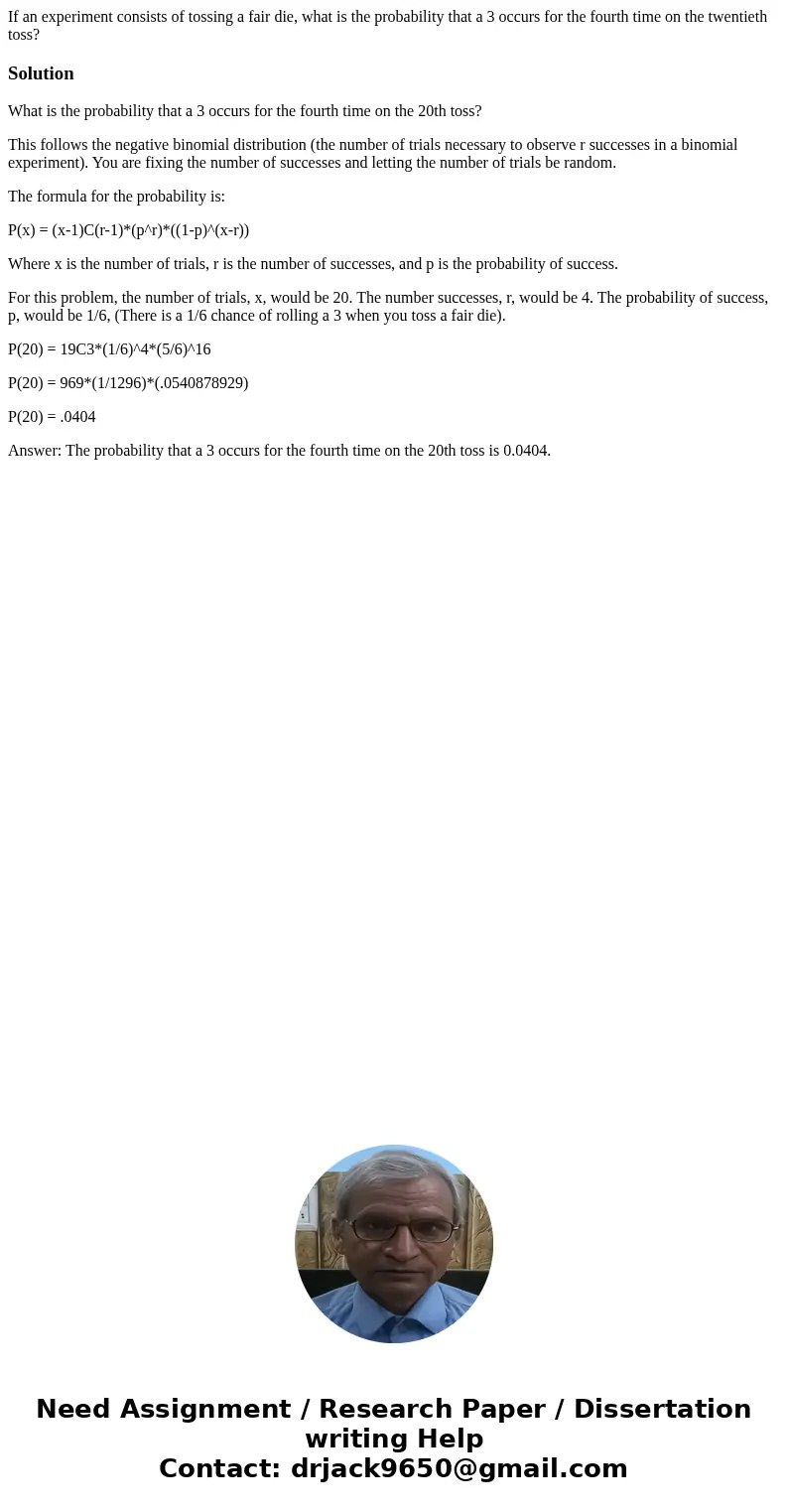If an experiment consists of tossing a fair die what is the
If an experiment consists of tossing a fair die, what is the probability that a 3 occurs for the fourth time on the twentieth toss?
Solution
What is the probability that a 3 occurs for the fourth time on the 20th toss?
This follows the negative binomial distribution (the number of trials necessary to observe r successes in a binomial experiment). You are fixing the number of successes and letting the number of trials be random.
The formula for the probability is:
P(x) = (x-1)C(r-1)*(p^r)*((1-p)^(x-r))
Where x is the number of trials, r is the number of successes, and p is the probability of success.
For this problem, the number of trials, x, would be 20. The number successes, r, would be 4. The probability of success, p, would be 1/6, (There is a 1/6 chance of rolling a 3 when you toss a fair die).
P(20) = 19C3*(1/6)^4*(5/6)^16
P(20) = 969*(1/1296)*(.0540878929)
P(20) = .0404
Answer: The probability that a 3 occurs for the fourth time on the 20th toss is 0.0404.

 Homework Sourse
Homework Sourse